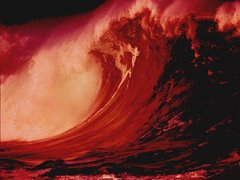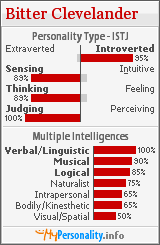Even those whose only exposure to classical music comes from the occasional movie or TV show soundtrack are familiar with Rossini's music. The famous "Figaro, Figaro" aria? From Rossini's most popular opera, "Il Barbiere Di Siviglia." The fanfare music of The Lone Ranger? From Rossini's "Guillaume Tell" overture. The incongruously chippy music during the gang fight scene in "A Clockwork Orange"? From Rossini's "La Gazza Ladra" overture. Rossini's music is characterized by very upbeat, catchy melodies, and extremely clever orchestration. Rossini almost single-handedly popularized the conspicuous but always tasteful use of every conceivable orchestral bell & whistle to score his exhilarating overtures. That, along with his penchant for not-so-subtle dynamic increases, earned him the wonderful nickname, "Monsieur Crescendo."

A quirky man with an even quirkier sense of humour, Rossini enjoyed a friendly rivalry with Giacomo Meyerbeer, a fellow opera composer who also resided in Paris. There are many a wonderful anecdote depicting the various pranks and practical jokes Rossini played on Meyerbeer, but my favourite Rossini/Meyerbeer story took place during Meyerbeer's funeral. Rossini, of course, was in attendance to honour his friend. Meyerbeer's nephew, who fancied himself a composer, wrote a funeral march for the occasion. Once the funeral ended, the unfortunate nephew sought out Rossini to ask him how he'd liked the composition. The maestro's reply: "It's perfectly competent. But I wonder if it wouldn't have been more delightful if you had died and your uncle had written the march."
That rather wicked sense of humour permeates pretty much all of Rossini's music. The lovely overture to his long-forgotten opera "Il Signor Bruschino," for example, actually calls for the second violinists to tap on their music stand with their bows! The effect is hilarious but also oddly enjoyable, and rather than distract or detract from the music, actually complements it. Such was the genius of the birthday boy, Monsieur Crescendo.


No comments:
Post a Comment